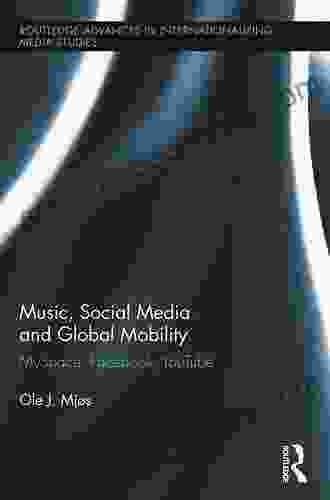Controlling Corruption: The Social Contract Approach

The Social Contract Approach emerges as a powerful framework for combating corruption. It posits that citizens and governments enter into an implicit or explicit agreement, whereby citizens entrust governments with the authority to govern in exchange for protection, services, and a voice in decision-making. This reciprocal arrangement forms the basis of legitimacy and accountability. When governments fail to fulfill their obligations under this social contract, corruption flourishes.
The Social Contract Approach focuses on three pillars: accountability, transparency, and public trust.
Accountability:
5 out of 5
| Language | : | English |
| File size | : | 1496 KB |
| Text-to-Speech | : | Enabled |
| Screen Reader | : | Supported |
| Enhanced typesetting | : | Enabled |
| Word Wise | : | Enabled |
| Print length | : | 204 pages |
| Lending | : | Enabled |
Accountability ensures that those in positions of power are held responsible for their actions. Robust mechanisms, such as independent anti-corruption agencies, judicial oversight, and civil society scrutiny, empower citizens to hold governments accountable for their decisions and actions. By creating a culture of consequences, accountability deters corruption and promotes ethical behavior.
Transparency:
Transparency fosters an environment where information is readily available and accessible to the public. Laws guaranteeing freedom of information, open government practices, and transparent procurement processes allow citizens to scrutinize government activities and hold officials accountable. By exposing corruption and reducing opportunities for illicit enrichment, transparency builds public trust and encourages integrity.
Public Trust:
Public trust is the bedrock of a society that is resilient to corruption. When citizens trust their government and its institutions, they are more likely to report corruption, participate in anti-corruption efforts, and comply with regulations. Building trust requires genuine engagement with citizens, responsive governance, and a commitment to addressing grievances. By fostering a sense of ownership and shared responsibility, public trust empowers citizens to become agents of change.
Implementing the Social Contract Approach requires a concerted effort from governments, civil society organizations, and citizens. Governments must demonstrate a genuine commitment to fighting corruption by enacting strong anti-corruption laws, establishing independent oversight bodies, and investing in anti-corruption education and awareness campaigns.
Civil society organizations play a vital role in monitoring government actions, advocating for transparency, and mobilizing citizens to demand accountability. They can also provide support to victims of corruption and promote ethical values in society.
Citizens, as the primary stakeholders in the social contract, have the power to make their voices heard. By exercising their rights to vote, participate in public discourse, and hold governments accountable, citizens can create a formidable force against corruption. Active citizenship, coupled with a culture of integrity, fosters a society that is intolerant of corruption.
The Social Contract Approach is not just a theoretical framework; it has been successfully implemented in several countries. For instance, in Georgia, a comprehensive anti-corruption program anchored in the Social Contract Approach led to significant reductions in corruption levels, improved public services, and increased economic growth. The program involved establishing an independent anti-corruption agency, enacting strict financial disclosure laws, and investing in public education campaigns to raise awareness about the harmful effects of corruption.
Another successful example is Singapore, where a strong commitment to transparency, accountability, and public trust has created an environment where corruption is rare. The government has implemented strict anti-corruption laws, established an independent anti-corruption agency, and invested heavily in public outreach programs to promote ethical values. As a result, Singapore consistently ranks among the least corrupt countries in the world.
The Social Contract Approach offers a practical and effective roadmap for controlling corruption. By focusing on accountability, transparency, and public trust, it strengthens the bonds between citizens and governments, creating a society that is more resilient to corruption. Embracing this approach can empower us to create a world where integrity prevails and the scourge of corruption is relegated to the past.
- Transparency International
- World Bank Anti-Corruption
- United Nations Convention against Corruption
- The Social Contract Approach to Anti-Corruption
5 out of 5
| Language | : | English |
| File size | : | 1496 KB |
| Text-to-Speech | : | Enabled |
| Screen Reader | : | Supported |
| Enhanced typesetting | : | Enabled |
| Word Wise | : | Enabled |
| Print length | : | 204 pages |
| Lending | : | Enabled |
Do you want to contribute by writing guest posts on this blog?
Please contact us and send us a resume of previous articles that you have written.
 Book
Book Novel
Novel Page
Page Chapter
Chapter Text
Text Story
Story Genre
Genre Reader
Reader Library
Library Paperback
Paperback E-book
E-book Magazine
Magazine Newspaper
Newspaper Paragraph
Paragraph Sentence
Sentence Bookmark
Bookmark Shelf
Shelf Glossary
Glossary Bibliography
Bibliography Foreword
Foreword Preface
Preface Synopsis
Synopsis Annotation
Annotation Footnote
Footnote Manuscript
Manuscript Scroll
Scroll Codex
Codex Tome
Tome Bestseller
Bestseller Classics
Classics Library card
Library card Narrative
Narrative Biography
Biography Autobiography
Autobiography Memoir
Memoir Reference
Reference Encyclopedia
Encyclopedia Brent Towns
Brent Towns James Robert Saunders
James Robert Saunders Bonnie Bright
Bonnie Bright Brandon Doyle
Brandon Doyle Borin Van Loon
Borin Van Loon Beverley Scherberger
Beverley Scherberger Hui Feng
Hui Feng Shawn A Henry
Shawn A Henry Scott Mckenzie
Scott Mckenzie Bonnie C Wade
Bonnie C Wade Bill Mcbirnie
Bill Mcbirnie Janet S Steinwedel
Janet S Steinwedel Betty Adams
Betty Adams Wendy Paris
Wendy Paris W E B Du Bois
W E B Du Bois Boria Sax
Boria Sax Bonnie Scott
Bonnie Scott Bill Brennan
Bill Brennan Bob Aldrich
Bob Aldrich William T Lewis
William T Lewis
Light bulbAdvertise smarter! Our strategic ad space ensures maximum exposure. Reserve your spot today!

 Sammy PowellThe Enchanting Harmonies: A Journey Through the Music of Lorrie Morgan and...
Sammy PowellThe Enchanting Harmonies: A Journey Through the Music of Lorrie Morgan and... José MartíFollow ·2.3k
José MartíFollow ·2.3k Fernando BellFollow ·15.3k
Fernando BellFollow ·15.3k Ezekiel CoxFollow ·9.9k
Ezekiel CoxFollow ·9.9k Enrique BlairFollow ·18.9k
Enrique BlairFollow ·18.9k Kirk HayesFollow ·13.9k
Kirk HayesFollow ·13.9k Brennan BlairFollow ·16.1k
Brennan BlairFollow ·16.1k Benjamin StoneFollow ·7.7k
Benjamin StoneFollow ·7.7k Ken SimmonsFollow ·9.8k
Ken SimmonsFollow ·9.8k

 Corey Green
Corey GreenHuman Geography: A Concise Introduction by Gilbert...
A Journey into the Dynamic Realm of...

 Julian Powell
Julian PowellTrain Your Mind to Make Great Art a Habit
Do you dream of...

 Matthew Ward
Matthew WardSmall Town Romance: Heart Compass
Escape to Willow Creek, Where...

 Neil Parker
Neil ParkerMusic, Social Media, and Global Mobility: Exploring...
: The Convergence of Music, Media, and...

 Seth Hayes
Seth HayesUnlock the Potential of Potential Theory with Brooke...
Embark on an...
5 out of 5
| Language | : | English |
| File size | : | 1496 KB |
| Text-to-Speech | : | Enabled |
| Screen Reader | : | Supported |
| Enhanced typesetting | : | Enabled |
| Word Wise | : | Enabled |
| Print length | : | 204 pages |
| Lending | : | Enabled |












